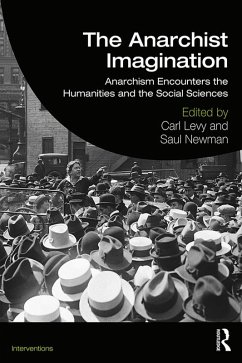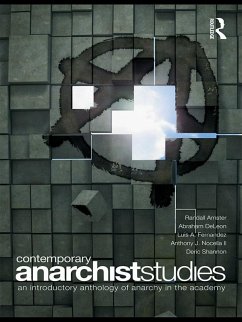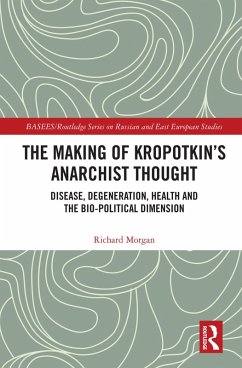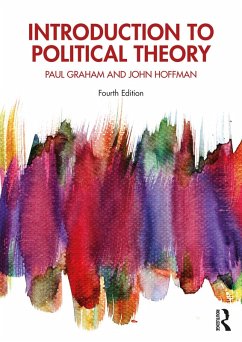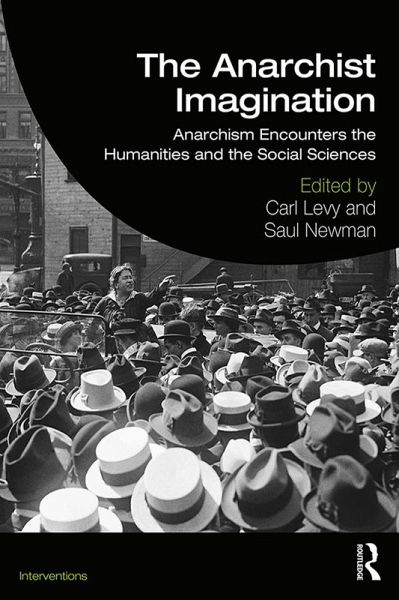
The Anarchist Imagination (eBook, PDF)
Anarchism Encounters the Humanities and the Social Sciences
Redaktion: Levy, Carl; Newman, Saul
Versandkostenfrei!
Sofort per Download lieferbar
42,95 €
inkl. MwSt.
Weitere Ausgaben:

PAYBACK Punkte
21 °P sammeln!
This is a broad ranging introduction to twenty-first-century anarchism which includes a wide array of theoretical approaches as well as a variety of empirical and geographical perspectives. The book demonstrates how the anarchist imagination has influenced the humanities and social sciences including anthropology, art, feminism, geography, international relations, political science, postcolonialism, and sociology.Drawing on a long historical narrative that encompasses the 'waves' of anarchist movements from the classical anarchists (1840s to 1940s), post-war wave of student, counter-cultural a...
This is a broad ranging introduction to twenty-first-century anarchism which includes a wide array of theoretical approaches as well as a variety of empirical and geographical perspectives. The book demonstrates how the anarchist imagination has influenced the humanities and social sciences including anthropology, art, feminism, geography, international relations, political science, postcolonialism, and sociology.
Drawing on a long historical narrative that encompasses the 'waves' of anarchist movements from the classical anarchists (1840s to 1940s), post-war wave of student, counter-cultural and workers' control anarchism of the 1960s and 1970s to the DIY politics and Temporary Autonomous Zones of the 1990s right up to the Occupy! Movement and beyond, the aim of this volume is to cover the humanities and the social sciences in an era of anarchist revival in academia. Anarchist philosophy and anarchistic methodologies have re-emerged in a range of disciplines from Organization Studies, to Law, to Political Economy to Political Theory and International Relations, and Anthropology to Cultural Studies. Anarchist approaches to freedom, democracy, ethics, violence, authority, punishment, homelessness, and the arbitration of justice have spawned a broad array of academic publications and research projects. But this volume remembers an older story, in other words, the continuous role of the anarchist imagination as muse, provocateur, goading adversary, and catalyst in the stimulation of research and creative activity in the humanities and social sciences from the middle of the nineteenth century to today.
This work will be essential reading for scholars and students of anarchism, the humanities, and the social sciences.
Drawing on a long historical narrative that encompasses the 'waves' of anarchist movements from the classical anarchists (1840s to 1940s), post-war wave of student, counter-cultural and workers' control anarchism of the 1960s and 1970s to the DIY politics and Temporary Autonomous Zones of the 1990s right up to the Occupy! Movement and beyond, the aim of this volume is to cover the humanities and the social sciences in an era of anarchist revival in academia. Anarchist philosophy and anarchistic methodologies have re-emerged in a range of disciplines from Organization Studies, to Law, to Political Economy to Political Theory and International Relations, and Anthropology to Cultural Studies. Anarchist approaches to freedom, democracy, ethics, violence, authority, punishment, homelessness, and the arbitration of justice have spawned a broad array of academic publications and research projects. But this volume remembers an older story, in other words, the continuous role of the anarchist imagination as muse, provocateur, goading adversary, and catalyst in the stimulation of research and creative activity in the humanities and social sciences from the middle of the nineteenth century to today.
This work will be essential reading for scholars and students of anarchism, the humanities, and the social sciences.
Dieser Download kann aus rechtlichen Gründen nur mit Rechnungsadresse in A, B, BG, CY, CZ, D, DK, EW, E, FIN, F, GR, HR, H, IRL, I, LT, L, LR, M, NL, PL, P, R, S, SLO, SK ausgeliefert werden.




